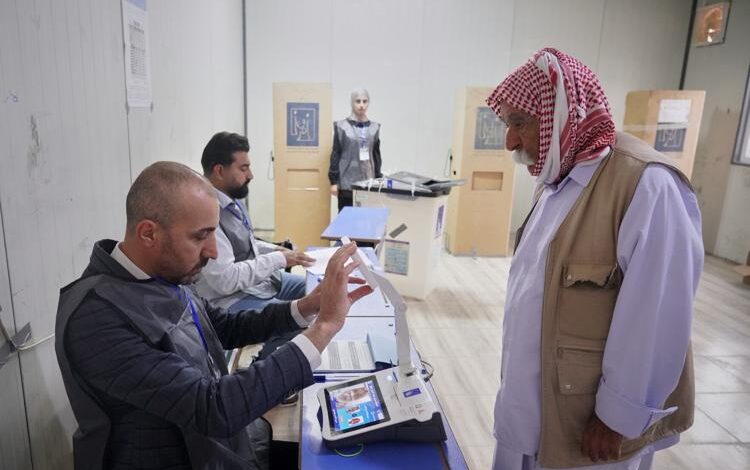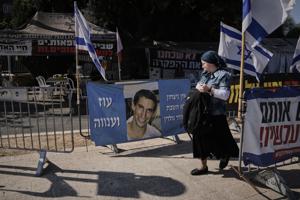Iraqi Security Forces and Displaced Yazidis Vote Ahead of Elections

Members of the Iraqi security forces and displaced individuals, including many from the Yazidi minority, participated in early voting on March 3, 2024, ahead of Iraq’s parliamentary elections. This election is pivotal as it will determine if Prime Minister Mohammed Shia al-Sudani secures a second term. It comes at a time of heightened tensions in the region, particularly regarding the ongoing conflict between Israel and Iran, as well as Iraq’s complex relationships with both Tehran and Washington.
Voting Landscape and Challenges for the Yazidi Community
Approximately 1.3 million military and security personnel, alongside around 26,000 displaced individuals, are eligible to vote in this election. A total of 7,744 candidates are competing, primarily from sectarian-aligned parties. Regular election day is set for March 5, 2024.
In a camp near Dohuk, located in the semi-autonomous Kurdish region, many Yazidis, who fled their homes over a decade ago due to attacks by the Islamic State group, cast their votes. The polling station in a small school experienced a slow start, with few voters arriving until after 9 a.m. Many individuals came with worn identification cards or assisted elderly relatives toward the polling entrance. Inside, classrooms were filled with monitors from various political parties, each vying for the attention of voters.
The Yazidi community has faced significant challenges since the defeat of IS in Iraq. Although some members have begun to return to their homes in the Sinjar district, many are discouraged by the lack of infrastructure and political stability. Khedhir Qassim, a displaced Yazidi from Sinjar, expressed disillusionment with the political process, stating, “Eleven years passed, and the situation is the same. We want them to support us and rebuild our areas that are ruined due to their political dispute and where everyone works for their own benefit.”
Political Dynamics and Displaced Voter Sentiments
Another displaced Yazidi voter, Edris Zozani, indicated his support for the Kurdish Democratic Party (KDP), one of the two dominant Kurdish parties in Iraq. Zozani noted that while independent Yazidi candidates may struggle to represent their interests effectively, affiliation with established parties like the KDP could offer greater support for the Yazidi community.
In the capital, Baghdad, members of the military, police, and the Popular Mobilization Forces (PMF)—a coalition of primarily Shiite militias—also participated in early voting. The PMF, which gained prominence during the fight against IS, operates with a degree of autonomy despite being integrated into Iraq’s military structure since 2016. The future of the PMF is a contentious issue that the next parliament must navigate, especially amid U.S. concerns regarding Iran-backed militias operating in Iraq.
A militiaman voting in Baghdad expressed his support for a list that defends the PMF, although he chose to remain anonymous due to the sensitive nature of his comments. Several political parties associated with different PMF factions are participating in the upcoming elections, indicating a significant influence on the political landscape.
As Iraq approaches election day, the voices of displaced individuals, particularly from the Yazidi community, highlight the ongoing struggles for political representation and the urgent need for infrastructure rebuilding in areas devastated by conflict.






